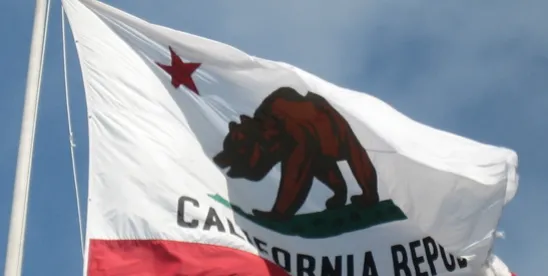The October 2022 edition of the Essentials marks the end of California’s legislative session. As a helpful summary, we have outlined key provisions of many of the new California employment laws for 2023:
Most Significant, Generally Applicable New Laws
SB 1162 - Pay Transparency Law
Existing law requires companies with more than 100 employees to submit certain wage data to the Department of Fair Employment and Housing. SB 1162 requires that companies with more than 15 employees disclose pay scales in job postings, and provide the pay scales to current employees upon request. Additionally, SB 1162 requires the wage data reports for companies with more than 100 employees (including employees through labor contractors) include the median and mean hourly rate for each combination of race, ethnicity, and sex within each job category for employees.
SB 1162 also requires that employers maintain records of a job title and wage history for each employee for the duration of employment plus three years after the end of employment in order for California’s Labor Commissioner to determine if there is a pattern of wage discrepancy. If an employer does not follow SB 1162’s requirements, an aggrieved party may file a written complaint with the state Division of Labor Standards Enforcement (DLSE). An aggrieved party may also file a civil action. For violations, the DLSE may impose a civil penalty between US$100 and US$10,000 per violation. The DLSE will not assess a penalty for the first violation if the employer can demonstrate that all job postings for open positions have been updated to include the required pay scale information. If an employer fails to keep such records, however, there is a rebuttable presumption in favor of an employee’s wage discrepancy claim.
AB 2188 – Prohibits Employers from Discriminating Against Off the Job Cannabis Use
AB 2188 amends California’s Fair Employment and Housing Act (FEHA) to make it unlawful for employers to “discriminate against a person in hiring, termination, or any term or condition of employment” because of an employee’s use of cannabis off the job and away from work or for failing an employer mandated drug screen. If an employer wants to punish an employee for cannabis related conduct, it must show that the employee was either in possession of or under the influence of cannabis while at the workplace. The new law does not apply to employees in the building and construction trades; or applicants or employees hired for positions that require a federal government background investigation or security clearance in accordance with regulations issued by the United States Department of Defense. It does not affect the rights or obligations of an employer specified by federal law or regulation.
AB 1041 – Expands Family Leave to Include Non-Family
The California Family Rights Act makes it an unlawful employment practice for a California employer with five or more employees to refuse to grant a request from an employee (who meets specified requirements) to take up to a total of 12 workweeks in any 12-month period for family care and medical leave. AB 1041 expands the class of people for whom an employee may take leave to care for to include a designated person, who would be identified at the time the employee requests the leave. The designated person may be someone the employee considers the equivalent of a family relationship. An employer will be allowed to limit an employee to one designated person per 12-month period.
SB 523 - Contraceptive Equity Act of 2022
Commencing 1 January 2024, SB 523 amends the FEHA to prohibit employers from discriminating based on “reproductive health decision-making,” or requiring disclosure of reproductive health decision-making as a condition of employment. Reproductive health decision-making includes, but is not limited to, a decision to use or access a particular drug, device, product, or medical service for reproductive health. Additionally, SB 523 requires healthcare plans to cover over-the-counter contraceptives and prohibits plans from imposing any cost-sharing requirements for vasectomies.
COVID
AB 152 – COVID-19 Supplemental Paid Sick Leave
AB 152 extends the current iteration of the SPSL requirements for COVID-19-related leave from 30 September 2022 through 31 December 2022. Importantly, it will not entitle employees to a new bank of SPSL.
AB 2693 – COVID-19 Exposure
Labor Code section 6409.6 requires employers to prominently display a notice to employees regarding COVID-19 containing the following information: (i) the dates on which an employee with a confirmed case of COVID-19 was on the worksite premises within the infectious period, (ii) the location of the exposures, including the department, floor, building, or other area, but the location need not be so specific as to allow individual workers to be identified, (iii) contact information for employees to receive information regarding COVID-19-related benefits to which the employee may be entitled under applicable federal, state, or local laws, and (iv) contact information for employees to receive the cleaning and disinfection plan that the employer is implementing per the guidelines of the federal Centers for Disease Control and Prevention and the COVID-19 prevention program per the Cal-OSHA COVID-19 Emergency Temporary Standards.
The notice now may also be provided in a manner the employer normally uses to communicate about employment-related matters, such as via e-mail. The requirements of Section 6409.6 were set to expire on 1 January 2023, and are extended to 1 January 2024 by AB 2693.
AB 1751 – Extends COVID-19 Workers’ Compensation Presumptions for Two years
AB 1751 extends the current rebuttable presumption that places the burden on California employers to prove specified employees did not contract COVID-19 at work. AB 1751 extends the presumption to 1 January 2025. AB 1751 provides that if an employee has paid sick leave benefits specifically available for COVID-19, those benefits must be exhausted before any temporary disability benefits under the workers’ compensation system become due.
Compliance
AB 257 – FAST Recovery Act
The FAST Recovery Act (FAST Act) establishes the Fast Food Council (Council) within the Department of Industrial Relations composed of ten members (a representative of the Department of Industrial Relations, two representatives of fast food restaurant franchisors and of franchisees, two fast food restaurant employees, two advocates for fast food restaurant employees, a representative from the Governor’s office). The Council must promulgate minimum fast food restaurant employment standards, including standards on wages, working conditions, and training. A fast food chain is defined as a set of restaurants consisting of 100 or more establishments nationally that share a common brand. The Council must conduct a full review of the adequacy of minimum fast food restaurant health, safety, and employment standards at least once every three years and issue, amend, or repeal standards as appropriate. The minimum wage established by the council for 2023 may not exceed US$22.
The FAST Act also provides protections to fast food employees against discrimination or retaliation for disclosing information about public health or safety.
AB 2777 – Cover-Up Sexual Assault Claims Against Employers: One Year Revival Window for Claims Barred by Statute of Limitations
AB 2777 creates a one-year revival window for claims against employers alleging a cover-up of sexual assault. Claims that would otherwise be barred by the statute of limitations before 1 January 2023 may be commenced between 1 January 2023 and 31 December 2023. Plaintiffs must allege the following: (A) the plaintiff was sexually assaulted; (B) one or more entities are legally responsible for damages arising out of the sexual assault; and (C) the entity or entities, including, but not limited to, their officers, directors, representatives, employees, or agents, engaged in a cover up or attempted a cover up of a previous instance or allegations of sexual assault by an alleged perpetrator of such abuse. “Cover up” means a concerted effort to hide evidence relating to a sexual assault that incentivizes individuals to remain silent or prevents information relating to a sexual assault from becoming public or being disclosed to the plaintiff, including, but not limited to, the use of nondisclosure agreements or confidentiality agreements. AB 2777 also revives any related claims, including, but not limited to, wrongful termination and sexual harassment, arising out of the sexual assault that is the basis for a claim. The bill applies to sexual assault claims where the assault occurred on or after the individual’s 18th birthday.
SB 1044 – Emergency Conditions: Employer Retaliation
In the event of an emergency condition, SB-1044 prohibits an employer from taking or threatening adverse action against any employee for refusing to report to, or leaving, a workplace or worksite within the affected area because the employee has a reasonable belief that the workplace or worksite is unsafe, except as specified. An emergency condition means the existence of either: (i) conditions of disaster or extreme peril to the safety of persons or property at the workplace or worksite caused by natural forces or a criminal act; or (ii) an order to evacuate a workplace, a worksite, a worker’s home, or the school of a worker’s child due to natural disaster or a criminal act.
Additionally, an employer may not prevent any employee from accessing the employee’s mobile device or other communications device for seeking emergency assistance, assessing the safety of the situation, or communicating with a person to confirm their safety. An employee must notify the employer of the emergency condition requiring the employee to leave or refuse to report to the workplace or worksite.
These provisions do not apply to certain employees, such as a first responder or an employee required by law to render aid or remain on the premises in case of an emergency.
AB 1601 – Employee Protections for Mass Layoffs, Relocation, and Termination of Employees for Call Centers
AB 1601 expands the California Worker Adjustment and Retraining Act (Cal/WARN Act) to prohibit a call center employer from ordering a relocation of its call center (for example, by moving it out of the country) without satisfying the foregoing Cal/WARN Act requirements. Additionally, it requires California’s Employment Development Department to publish a list of call center employers who have given notice, and provide workforce services to the employer and the call center.
AB 1788 – Seeks to Hold Hotels, Motels Accountable for Sex Trafficking
AB 1788 establishes a cause of action against hotels if a supervisory employee of the hotel either knew of the nature of the sex trafficking activity, or acted in reckless disregard of the activity and failed to timely inform law enforcement, or where an employee benefits from sex trafficking within the hotel. AB 1788 allows city, county, or city and county attorneys to seek civil penalty of US$1,000 for the first violation, US$3,000 for a second violation within the same calendar year, and US$5,000 for a third and any subsequent violation of sex trafficking within the same calendar year.
AB 1949 – Mandated Bereavement Leave
AB 1949 requires public sector employers and private employers with five or more employees to provide employees (who have at least 30 days of service) up to five unpaid days of bereavement leave upon the death of a family member. If the employer does not have a paid bereavement policy, the leave is unpaid, except that an employee may use vacation, personal leave, accrued and available sick leave, or compensatory time off that is otherwise available to the employee. The leave must be completed within three months of the date of death.
SB 951 - Revision of Formula for Paid Family Leave and State Disability Insurance for Lower-wage Earners
SB 951 removes a remuneration limitation for workers’ compensation disability pay and increases the wage replacement formulas under state Paid Family Leave (PFL) and State Disability Insurance (SDI) programs.
Currently, lower-wage earners are eligible for up to 70% of their regular wages under PFL and SDI. Beginning on 1 January 2025, these lower-wage earners will be eligible for 90% of their regular wages under these programs.





 />i
/>i
